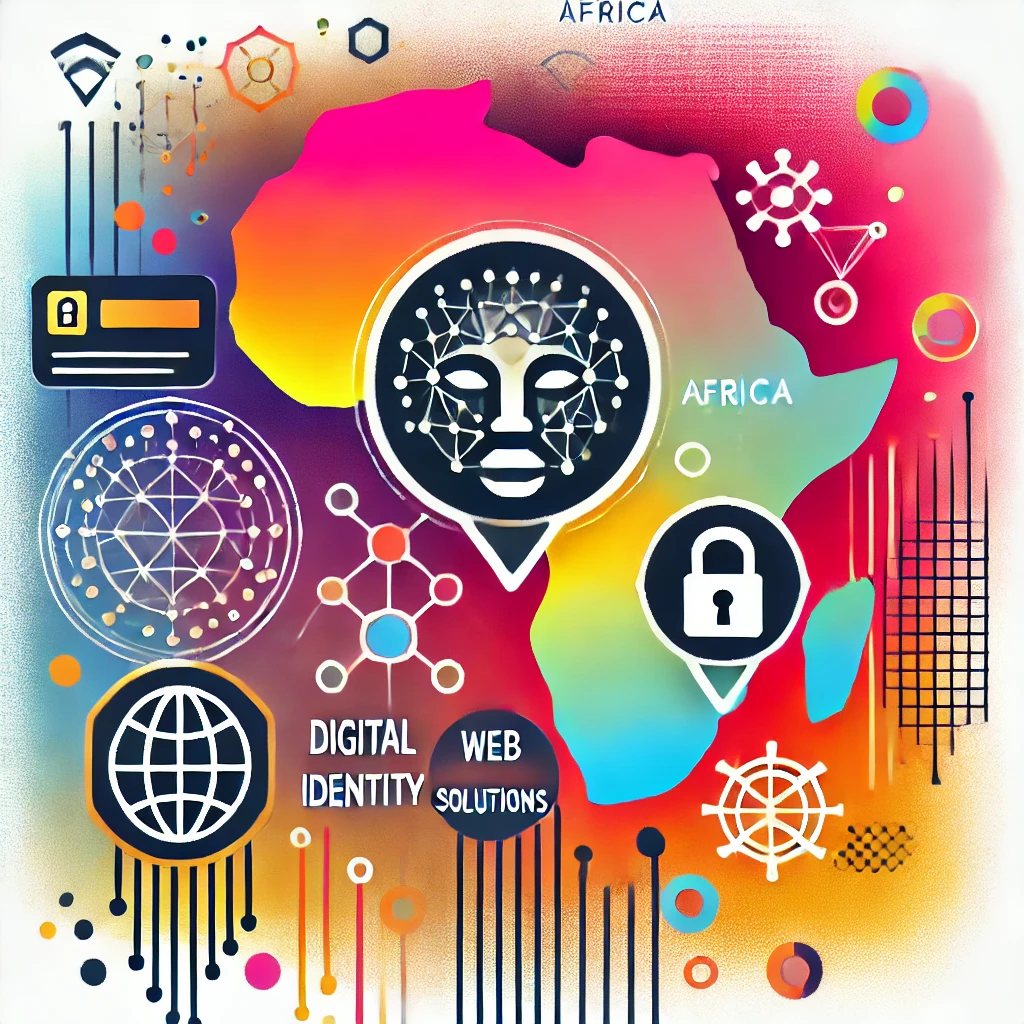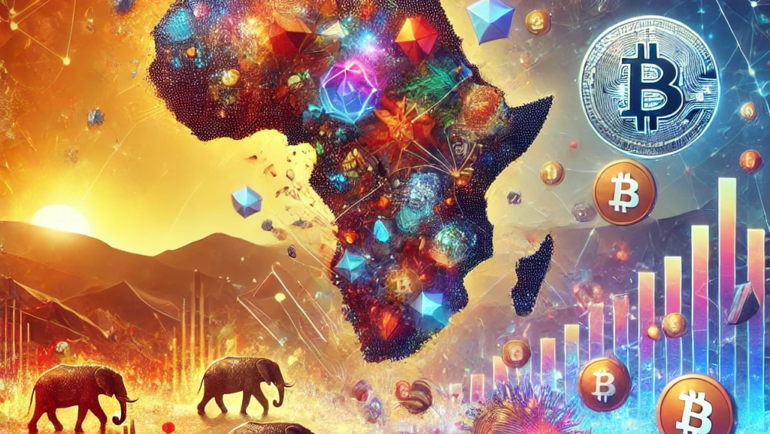
Digital Identity in Africa: Why Web3 Solutions Must Account for the Unbanked
In Africa’s journey toward digital transformation, a quiet but pressing crisis remains—millions of people lack a formal digital identity, leaving them invisible within their economic systems.
This gap limits access to crucial services like banking, healthcare, and education, creating significant roadblocks to progress.
The African Union has highlighted the potential economic impact of addressing this issue, estimating that effective digital identity systems could add 3 to 7 per cent to the GDP of African countries.
In Sub-Saharan Africa alone, 470 million people face this challenge, underscoring the urgency for solutions prioritising inclusivity and accessibility.
Meanwhile, over 600 million Africans remain unbanked, disconnected from financial systems that could transform their economic prospects. These figures are more than just statistics—they tell a story of exclusion and unrealized potential.
Web3 technologies offer a promising way forward, reimagining how identities can be created, verified, and used in diverse settings.
From remote villages in Nigeria to cities in Kenya, the push for digital identity is not just about technology. It’s about securing the right to be recognized, to participate in the economy, and to access essential services.
The lack of reliable identification systems has far-reaching effects. Millions are shut out of financial opportunities, healthcare, education, and government support without verifiable credentials.
This absence of verifiable identity isn’t just a bureaucratic inconvenience—it’s a barrier that locks people out of essential services, economic opportunities, and social mobility.
For many, these barriers are a daily reality, shaped by outdated or ineffective systems that fail to address the complex needs of African societies.
By leveraging innovative technologies like Web3, there is a chance to create solutions that genuinely reflect and serve the diverse communities across the continent.
The Digital Transformation Catalyst
Blockchain technology is reshaping how identity verification works in Africa, offering decentralized platforms that create secure, adaptable digital identities.
Unlike conventional systems, which often fail to account for the continent’s diversity, blockchain-based solutions are built to meet the unique needs of African communities. They provide essential tools for connecting marginalized populations to the global economy.
One of the key strengths of blockchain identity systems is their ability to deliver verifiable and tamper-proof credentials without relying on centralized authorities.
This is especially crucial for the unbanked, who often lack access to conventional identification. By creating unique digital identities, these platforms allow individuals to prove who they are, record their financial activities, and access services that were previously out of reach.
For many in Africa, digital identities are more than a technical upgrade—they mark a significant step toward economic inclusion.
With these tools, people can establish credit histories, access banking services, and participate in digital marketplaces, all while maintaining control over their data.
What sets blockchain apart is its decentralized framework, which keeps personal information secure and in the hands of the individual.
This approach protects privacy and builds trust, providing transparent systems for verifying identity across various sectors.
These innovations go beyond technology; they catalyse social and economic change. By offering practical solutions to long-standing challenges, blockchain-powered identity systems are helping millions of Africans gain a foothold in the broader economy, opening previously closed doors.
Digital Identity in Action
M-Pesa and Beyond (Kenya)
In Kenya, M-Pesa demonstrated how mobile technology could revolutionize financial access. Building on this foundation, blockchain-based identity systems are now helping refugees and rural communities establish verifiable digital identities.
Dr. Elizabeth Mutua, a digital policy researcher at the University of Nairobi, explains: “Blockchain provides a trustworthy mechanism for identity verification that transcends traditional documentation limitations. It’s particularly crucial in regions with inconsistent record-keeping.”
Government-Backed Blockchain Initiatives (Rwanda)
Rwanda has positioned itself as a forward-thinking adopter of blockchain identity solutions. The government collaborates with tech startups to create secure, portable digital identities for citizens, particularly those in remote areas.
“Our goal is not just technological implementation but genuine social inclusion,” says Jean-Paul Karenzi, Rwanda’s Minister of Digital Transformation. “Every digital identity represents an opportunity for economic participation.”
Privacy – A Cultural and Technological Challenge
African societies have complex, nuanced perspectives on personal information. Web3 identity solutions must respect these cultural sensitivities while providing robust privacy protections.
Cultural Considerations
In many African societies, trust operates through complex social mechanisms that transcend formal documentation.
Community validation carries more weight than official paperwork, with personal credibility established through intricate social networks and interpersonal relationships.
These deep-rooted cultural practices challenge conventional Western approaches to identity verification and privacy.
Personal information sharing follows social protocols deeply embedded in communal traditions.
Unlike individualistic societies prioritising personal privacy, African communities often view information exchange as a collective responsibility.
In these contexts, privacy is not about complete isolation but about maintaining respectful boundaries within interconnected social structures.
The concept of privacy differs dramatically between communal and individualistic cultural frameworks.
Where Western models emphasize individual data protection, African perspectives view personal information as part of a broader social fabric.
Elders, community leaders, and extended family networks traditionally play critical roles in validating an individual’s identity and reputation.
Web3 identity solutions must recognize these cultural complexities. Technological platforms cannot simply impose external frameworks but must integrate local understanding of trust, community validation, and information sharing.
Successful digital identity systems will require profound cultural sensitivity, and designing mechanisms that align with existing social dynamics rather than attempting to replace them.
These cultural considerations are not obstacles but opportunities for creating more meaningful, contextually relevant digital identity solutions that genuinely serve African communities.
Blockchain’s cryptographic techniques offer a promising middle ground, allowing selective information disclosure while maintaining individual agency.
Technical Architecture
Web3 digital identity solutions in Africa require more than standard verification models. They must:
- Support multiple language inputs
- Work with limited internet connectivity
- Function across diverse device ecosystems
- Integrate with existing mobile money platforms
- Provide low-cost verification mechanisms
Refugee Empowerment – Practical Implementation
Dadaab Refugee Camp, Kenya: A Pioneering Model
Blockchain identity projects have created remarkable opportunities in Dadaab, one of the world’s largest refugee settlements,. Refugees can now:
- Receive humanitarian aid more efficiently
- Access educational resources
- Maintain portable identification across borders
- Establish credit histories
- Participate in micro-entrepreneurship programs
Economic Impact: More Than Just an ID
Digital identity is an economic multiplier. By providing verifiable credentials, blockchain solutions enable:
- Easier access to financial services
- Micro-lending opportunities
- Enhanced social service delivery
- Reduced bureaucratic friction
- Protection against identity fraud
Challenges and Realistic Perspectives
Web3 digital identity solutions for African markets face significant implementation challenges that require strategic and comprehensive approaches.
Limited digital literacy remains a critical barrier, with many rural and urban populations lacking basic technological understanding.
Many communities struggle to comprehend complex digital platforms, creating substantial resistance to technological adoption.
Infrastructure constraints further complicate widespread implementation. Inconsistent internet connectivity, limited electrical access, and expensive mobile data create substantial obstacles to widespread digital identity system deployment.
Rural regions, a significant portion of African populations, often lack the fundamental technological infrastructure necessary for seamless digital interactions.
Regulatory uncertainties represent another substantial challenge. African governments maintain diverse and sometimes conflicting perspectives on digital identity frameworks
Each nation’s unique legal landscape creates complexities in developing standardized approaches to digital identification, requiring extensive collaboration between technological innovators, governmental bodies, and community stakeholders.
Initial implementation costs pose significant financial challenges. Developing robust, culturally sensitive digital identity platforms demands substantial investment in research, technology development, and community engagement.
These expenses can be prohibitively high for startups and technological enterprises focusing on emerging markets.
Technology adoption resistance stems from deep-rooted cultural skepticism and historical experiences of marginalization.
Communities that have experienced systematic exclusion remain cautious about new technological solutions, necessitating transparent, community-driven approaches prioritising trust and genuine social value.
A Collaborative Innovation
Digital identity transformation in Africa demands a comprehensive, collaborative approach that brings together diverse stakeholders with unique perspectives and capabilities.
Technology developers must create flexible, culturally sensitive platforms that adapt to the complex African technological ecosystem.
Their technical expertise provides the foundational infrastructure for meaningful digital identity solutions.
Government agencies are critical in establishing robust regulatory frameworks that protect citizens while enabling technological innovation.
By creating clear guidelines and supportive policy environments, these institutions can bridge the gap between technological potential and practical implementation.
Local community leaders serve as essential translators and advocates, helping bridge traditional social structures with emerging digital platforms.
Their deep understanding of cultural nuances and community dynamics ensures that technological solutions respect local traditions and address genuine community needs.
International development organizations bring crucial funding, global perspectives, and strategic insights.
These entities can provide essential resources, research support, and cross-border knowledge transfer that amplifies the impact of digital identity initiatives.
Financial institutions represent another pivotal stakeholder, offering critical infrastructure and expertise in creating secure, accessible digital financial ecosystems.
Their involvement ensures that digital identity platforms can seamlessly integrate with existing financial systems, creating tangible economic opportunities for unbanked populations.
Successful digital identity strategies emerge from genuine collaboration, where each stakeholder contributes unique strengths toward a shared vision of technological and social empowerment.
A Pathway to Inclusive Digital Citizenship
Web3 digital identity solutions represent more than technological innovation—they’re a bridge connecting marginalized populations to global economic opportunities.
By understanding and respecting local contexts, these platforms can transform how African communities interact with digital ecosystems.
The future of digital identity in Africa isn’t about imposing external systems but creating flexible, respectful technologies that amplify human potential.


